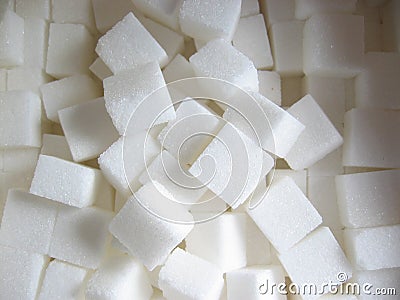By Sarah A LoBisco, ND

With my respect for the power of belief and the placebo effect, please don’t let the following blog stress out your system and create gnarly biochemical responses. We now know that stress make your body inflamed and go wonky. This information is provided for you in order to make more wise and conscious decisions on what to put in your body. My goal is to help you BREAKFREE from symptoms and diseases and move back into a truly sweet life.
In this blog, I’ll go through why avoiding artificial sweeteners might be in your best interest. I’ll conclude with some solutions that you can test for yourself to see if you notice a difference with your own, unique body!
CAUTION: PUT INTO YOUR MOUTH AT YOUR OWN RISK!
The use of artificial sweeteners has been controversial for a long period of time. In 2010, I blogged on a compilation of studies that demonstrated some negative effects of these substances.
Aspartame, one of the most common artificial sweeteners, has also been attributed to symptoms that range from rashes, headaches, MS, to cancer. These toxic effects may be due to its breakdown product into menthol (and formaldehyde) in the body. In fact, Dr. Mercola discusses the various physiological effects of this mechanism in his interview with Dr. Woody Monte, a professor emeritus at Arizona State University in food and chemistry.
Furthermore, the “Aspartame in the News” website lists further references of studies that portray mechanisms of harm and resource blogs on this subject. For example, aspartame has been linked to changes in enzyme formation in the brain in one study with Alzheimer-typed rats (Food Chem Toxicol. 2007).
Recently, Splenda, a relatively newer sweetener on the block, has received a downgrade in safety from the Center for Public Health (CPSI). According to Huffington Post:
The artificial sweetener sucralose (sold under the brand name Splenda) could potentially pose health risks, so it needs to be better understood before the sweetener should be assumed to be safe, one advocacy organization says.
The Center for Science in the Public Interest, a nonprofit watchdog group, said today that it was downgrading its safety rating of sucralose from “safe” to “caution,” meaning that the additive “may pose a risk and needs to be better tested.”
The change was spurred by a recent study from researchers in Italy that found that sucralose caused leukemia in mice, according to the CSPI. This study has not been published, and needs to be reviewed by other scientists to determine whether the findings are credible.
On June 12th, the CPSI released this warning on their website along with their avoid ratings of the other man-made sweeteners:
CSPI’s Chemical Cuisine gives the artificial sweeteners saccharin, aspartame, and acesulfame potassium “avoid” ratings, the group’s lowest. CSPI considers rebiana, a natural high-potency sweetener obtained from stevia, to be “safe,” though deserving of better testing.
“Sucralose may prove to be safer than saccharin, aspartame, and acesulfame potassium, but the forthcoming Italian study warrants careful scrutiny before we can be confident that the sweetener is safe for use in food,” said CSPI executive director Michael F. Jacobson.
More evidence on the negative effects of Spenda was found in a study with rats. Researchers demonstrated Splenda to cause the following harmful effects of the gut microbiome. The gut is the home of the immune function, digestion, assimilation, and nervous system regulation (among other roles):
(1) reduction in beneficial fecal microflora, (2) increased fecal pH, and (3) enhanced expression levels of P-gp, CYP3A4, and CYP2D1, which are known to limit the bioavailability of orally administered drugs.
Many people think that artificial sweeteners help with weight management, but this is not necessarily true. In fact, sweeteners may actually fool the brain to be hungrier and make you eat more. Furthermore, they may not be as calorie free as thought. (check out my response on ShareCare: http://www.sharecare.com/question/artificial-sweeteners-gain-weight).

Now, I promised you some solutions and individualized empowerment tools. I will provide this at my Saratoga.com blog. So, stay tuned and click on! 🙂
Sources:
Mercola, J. CSPI Downgrades Splenda From “Safe” to “Caution”. Mercola.com. June 26, 2013. http://articles.mercola.com/sites/articles/archive/2013/06/26/cspi-downgrades-splenda.aspx
Rachael Rettner, How Safe Is Splenda? CSPI Urges Caution for Artificial Sweetener. Huffington Post. June 12, 2013. http://www.huffingtonpost.com/2013/06/12/splenda-health-risks-cspi-leukemia-artificial-sweeteners_n_3431024.html
Center for Science in the Public Interest. CSPI Downgrades Splenda From “Safe” to “Caution”. Cspinet.org. June 12, 2013. http://cspinet.org/new/201306121.html
Abou-Donia MB, El-Masry EM, Abdel-Rahman AA, McLendon RE, Schiffman S. Splenda alters gut microflora and increases intestinal p-glycoprotein and cytochrome p-450 in male rats (abstract).J Toxicol Environ Health A. 2008;71(21):1415-29. doi: 10.1080/15287390802328630.